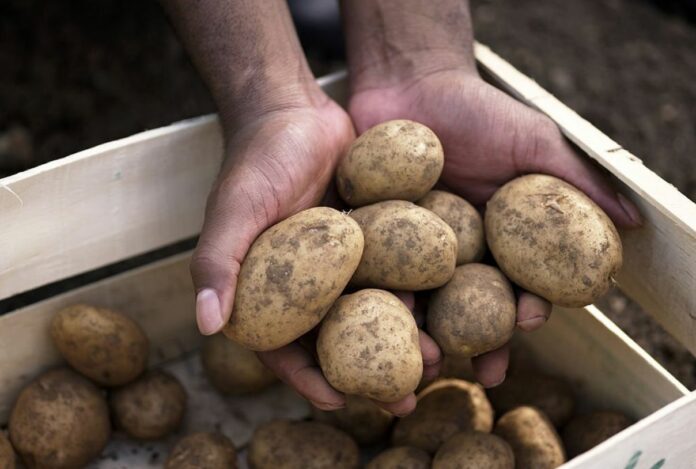Everyone knows someone with a cancer history. Around 19 million new cases and 10 million deaths were reported globally in 2020.
Although treatments are constantly being improved, they may still harm healthy cells or have unpleasant side effects that are difficult for patients to deal with. Traditional medicine has a wealth of potential candidates for developing new, more focused cancer treatments.
The glycolalkaloids, which are bioactive substances present in many well-known crops including potatoes and tomatoes, were examined by a group of Polish researchers at Adam Mickiewicz University under the direction of Magdalena Winkiel to show their potential to cure cancer.
“Scientists around the world are still searching for the drugs which will be lethal to cancer cells but at the same time safe for healthy cells,” explains Winkiel.
“It is not easy despite the advances in medicine and powerful development of modern treatment techniques.
“That is why it might be worth going back to medicinal plants that were used years ago with success in the treatment of various ailments. I believe that it is worth re-examining their properties and perhaps rediscovering their potential.”
Winkiel and her coworkers concentrated on five glycoalkaloids that are present in crude extracts of the Solanaceae plant family, generally referred to as nightshades: solanine, chaconine, solasonine, solamargine, and tomatine.
This family of plants includes several well-known food plants as well as numerous harmful ones, usually as a result of the alkaloids they make to protect themselves against herbivorous animals.
But the right dosage may transform a poison into a medicine: once alkaloids have been given in a safe therapeutic amount, they can be effective clinical instruments.
Particularly glycoalkaloids may encourage cancer cell death and limit the development of cancer cells. These are critical target regions for cancer management and patient prognosis, and so offer enormous promise for future therapies.
In silico studies, which are an essential initial step, indicate that the glycoalkaloids are not poisonous and do not pose a danger of harming DNA or creating future malignancies, while there may be some impacts on the reproductive system.
“Even if we cannot replace anticancer drugs that are used nowadays, maybe combined therapy will increase the effectiveness of this treatment,” says Winkiel, adding, “there are many questions, but without detailed knowledge of the properties of glycoalkaloids, we will not be able to find out.”
From vegetables to new cancer drug
Using in vitro and animal model research to evaluate whether glycoalkaloids are safe and promising enough for human testing is a critical next step.
Winkiel and her colleagues talk about glycoalkaloids like solanine and chaconine that come from potatoes. The amount of these substances in potatoes depends on the type of potato and how much light and heat they are exposed to.
Solanine inhibits metastasis and prevents several potentially carcinogenic compounds from becoming carcinogens in the body.
Studies conducted on a specific subtype of leukemia cells revealed that solanine, when administered in therapeutic levels, is capable of killing those cells. In addition to having anti-inflammatory effects, chaconine may also be effective in treating sepsis.
Solamargine, which is mostly present in aubergines, inhibits the growth of liver cancer cells.
Several glycoalkaloids, including solamargine, show promise as a supplementary therapy for cancer, since they attack cancer stem cells, which are implicated in the development of drug resistance in the disease.
The same route is considered to be attacked by the chemical solasonine, which is present in various plants in the nightshade family.
Even tomatoes have the potential to be used in medicine in the future because tomatine helps the body control the cell cycle so that it can destroy cancer cells.
Winkiel and her colleagues acknowledged the need for further study to discover how best to translate this in vitro promise into actual medical practice.
There is some evidence that high-temperature processing enhances the glycoalkaloid’s characteristics, and new research has shown that nanoparticles enhance the transfer of glycoalkaloids to cancer cells, hence enhancing medication delivery.
But the ways in which glycoalkaloids work need to be better understood, and all possible safety concerns need to be looked into before cancer patients can benefit from drugs made from plants.
Source: 10.3389/fphar.2022.979451
Image Credit: Getty
